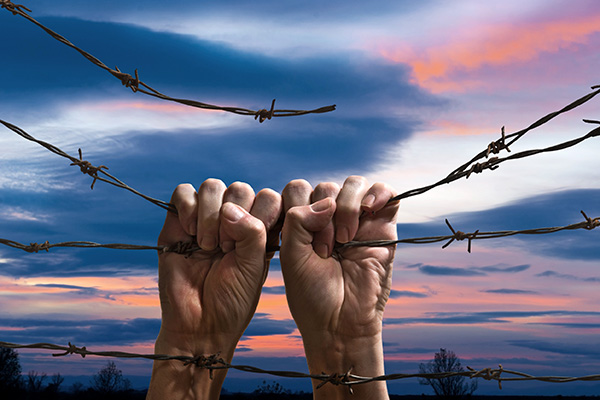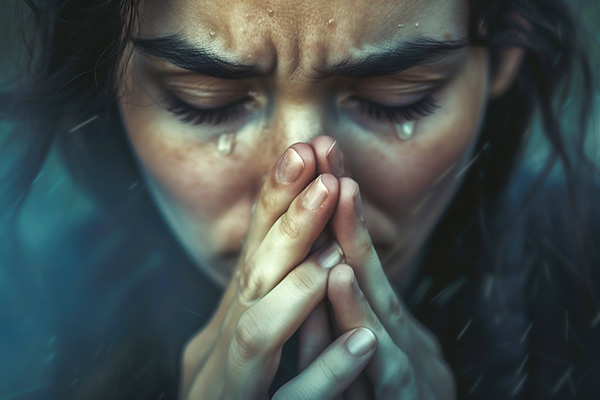life lessons
The Hidden Wisdom In Our Traumatic Life Experiences
 In the thousands of readings I have done over the years for people from all walks of life, I have repeatedly witnessed how the crucible of life’s trials and tribulations offers profound opportunities for spiritual growth and personal transformation.
In the thousands of readings I have done over the years for people from all walks of life, I have repeatedly witnessed how the crucible of life’s trials and tribulations offers profound opportunities for spiritual growth and personal transformation.
It never ceases to amaze me how there is always a spark of wisdom or hidden blessing to be found in every life challenge or traumatic experience. Even in the worst-case scenarios, Spirit is always able to reveal the life lesson or karmic opportunity in these situations.
In a psychic reading, spirit in the form of our ancestors, spirit guides, angels and the divine can offer profound insight and guidance into our hardships and challenges.
With the akashic wisdom gathered through many generations, your higher self, ancestors, and members of your soul family can offer perspectives and experiences that shed light on your current life circumstances.
Their presence in a reading can provide a deep-rooted understanding of family patterns, ancestral karmic debts, and inherited gifts, allowing you to navigate life’s challenges with newfound clarity and resilience.
In addition, our spirit guides and angels serve as divine messengers, offering support and illumination on our journey through life. Their presence in a psychic reading brings messages of encouragement, protection and divine intervention.
Free Yourself From Karmic Debt
 One of the most important things we must do before we leave this life and embrace the next is to ensure that our karmic debts are completely resolved. By doing so, we leave this world unburdened and ready to embrace our next existence with complete bliss.
One of the most important things we must do before we leave this life and embrace the next is to ensure that our karmic debts are completely resolved. By doing so, we leave this world unburdened and ready to embrace our next existence with complete bliss.
Now, if the consequences you may suffer in the afterlife are not of much concern to you, and you feel that karma is not really your problem, you may want to reconsider.
Carrying the heavy burden of karmic debt can also cause considerable misery and struggle in our present daily lives, manifesting as recurring negative patterns and obstacles that hinder our progress and well-being.
Our unresolved karma often leads to dysfunctional relationships, financial difficulties, health problems, and emotional turmoil as past harmful actions generate corresponding negative consequences. An ongoing state of karmic debt fosters feelings of frustration, helplessness, and despair, making it difficult to achieve happiness, joy, fulfillment, and peace.
By carrying the weight of unresolved karmic debt, you may find yourself trapped in a cycle of suffering, unable to break free and achieve the positive, fulfilling life you desire.
Karmic debt is a concept rooted in the spiritual principle of karma, which is a fundamental belief in many Eastern philosophies and religions, especially Hinduism and Buddhism. Karma refers to the universal law of cause and effect, whereby every action has a corresponding reaction. Our poor choices and negative actions create a spiritual debt. By acknowledging this debt and resolving our past mistakes, we achieve a state of inner peace, higher consciousness, spiritual growth and enlightenment.
Being Laid Off Can Spark Spiritual Growth
 Being laid off from a job can be a profoundly challenging and disorienting experience. The experience tends to stir up a myriad of feelings, worries, and questions about one’s purpose, value, security, and direction in life.
Being laid off from a job can be a profoundly challenging and disorienting experience. The experience tends to stir up a myriad of feelings, worries, and questions about one’s purpose, value, security, and direction in life.
But while job loss can be very unsettling and stressful, it also offers unexpected opportunities for personal and spiritual growth.
At its core, the spiritual journey invites us to explore the depths of our being and to seek meaning beyond the material realm. A layoff can serve as a catalyst for this exploration, prompting us to reevaluate our priorities, values, and relationship to work.
In many spiritual traditions, adversity is seen as an opportunity for growth and transformation, a chance to deepen our connection to the divine and uncover hidden aspects of ourselves.
Being fired is an invitation to surrender to the flow of life. In our modern society, we often cling to our plans and expectations, believing that we are in control of our destiny. However, a layoff can shatter this illusion of control and force us to confront the uncertainty and impermanence inherent in existence.
In the face of this new uncertainty, we have the opportunity to surrender our ego and trust in a higher power or cosmic intelligence to guide us on our path. This surrender is not an act of resignation, but rather an act of faith, a willingness to let go and allow life to unfold as it will.
Our Priorities Are The Moral Of The Story
 I have always loved thought-provoking stories. One of my favorites I heard when I was only seven years old. It’s profound wisdom has stayed with me all my life. It goes like this:
I have always loved thought-provoking stories. One of my favorites I heard when I was only seven years old. It’s profound wisdom has stayed with me all my life. It goes like this:
An old lady of about 85 years of age lived alone in an old, dilapidated log cabin in the woods. Due to her advanced age, daily life was a struggle, but this feisty woman knew she had to keep going to survive.
One day, while out gathering wood for a fire, she was approached by a mysterious wizard.
“Good morning,” said the wizard. “I have great news for you. Today is your lucky day! ” He then explained that he was the Wizard of the Forest, and that he would grant her any wish her heart desired.
The old lady paused to consider this generous offer. But before she could make up her mind, the wizard interrupted her thoughts. “I could turn all the wood you have into solid gold. Imagine how rich you would be!” he suggested.
“Oh, what good would that do?” replied the old woman. “I could hardly carry it back to my hut, for the gold would be much heavier than the wood!
“Well, then perhaps I could turn all the water in your house into wine,” said the wizard with great enthusiasm.
Always Feel Free To Own Your True Feelings
 Has anyone ever told you that you are too happy? Or has anyone ever told you that you smile too much? My guess is probably never.
Has anyone ever told you that you are too happy? Or has anyone ever told you that you smile too much? My guess is probably never.
So, why is it that whenever we experience negative emotions, be it grief, despair, or depression, we are often told that there is a time limit to such feelings and that we need to get over it. In today’s society, it is essentially also taboo to express feelings of loneliness, sadness, fear, or simply being unhappy.
My brother died at the tender age of 12 and left such a void in our lives that my entire family grieved his loss for decades. Fortunately, we were raised to accept this as a perfectly normal and natural process for us. We all understood that we would work through our feelings of grief and loss in our own way and at our own pace. We did not grieve according to a schedule or set of societal rules.
I find that a useful way to think about feelings and how to process them is to think of our emotions as being processed by our heart and mind like food is processed by our body. Just like food, we need to break down, digest, and assimilate the lessons and insights in our emotions to serve as growth “nutrients” for the soul.

